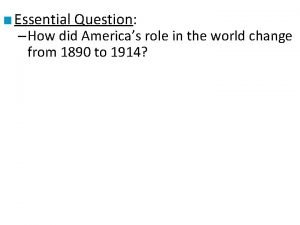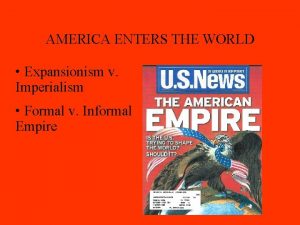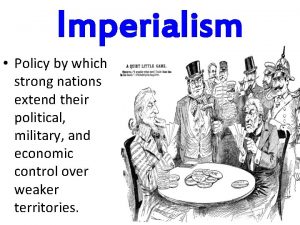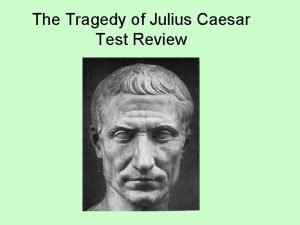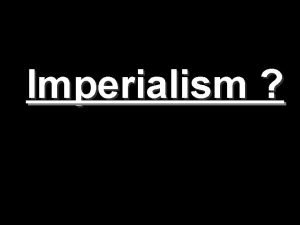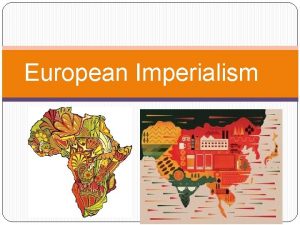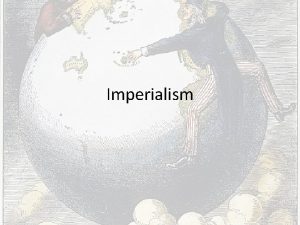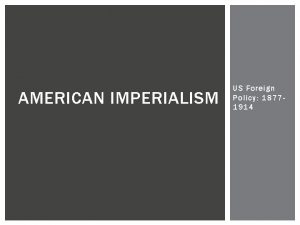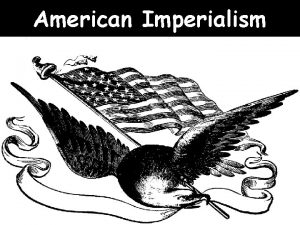Unit 6 Test Review IMPERIALISM Imperialism The policy







- Slides: 7

Unit 6 Test Review

IMPERIALISM • Imperialism = The policy of extending the rule or authority of an empire or nation over foreign countries, or of making colonies. • Europe was an imperial/colonial power of Europe • Europeans were first interested in Africa because they wanted the slave labor. • The only two countries not colonized by the Europeans were Ethiopia and Liberia • Europe colonized Africa to: protect transportation routes, collect natural resources, bring Christianity, and grow prestige. • Europe was interested in natural resources: Gold, Rubber, Platinum, and Diamonds

EFFECTS OF IMPERIALISM • To avoid conflict between the European nations, the Berlin Conference (1885) resulted in artificial political boundaries throughout Africa. • This created conflict and eventually Civil War between rival ethnic and religious groups (think Rwanda) • Direct Rule vs. Indirect Rule • Direct Rule: The Europeans lived in their colonies and oversaw the administration • Indirect Rule: The Euro’s used local people to help administer the colony Positives of Imperialism Improved roads and railroads

PAN-AFRICANISM • The Pan-African Movement began as a reaction to the terrible experiences of colonial rule and the desire for the people of African descent, no matter where they lived in the world, to think of Africa as a homeland. • Early pioneer of the Pan-African Movement: W. E. B. Du Bois • Pan-Africanism eventually led to the creation of the African Union which wanted to accomplish: • Build strong economies in Africa • Encourage democracy for the newly independent countries • Safeguard human rights • Civil Rights • Stopping Genocide • Humanitarian efforts (clean water, stop spread of disease)

INDEPENDENCE • After helping many European nations in WWII, many Africans believed the Euro’s were inconsistent with their fight against oppression and for freedom. • During the time of WWII, increased NATIONALISM began to grow in Africa • Nationalism: Demand for self-rule, strong feeling of loyalty to a country.

NIGERIA VS. KENYA Nigeria’s Independence Kenya’s Independence • Gained from Great Britain In 1963 Violently In 1960 Peacefully • Since gaining independence Nigeria has suffered from violence, coups, and Civil War • Uprising started by the Mau • First leader was Jomo Kenyatta • Kenya has since enjoyed relative peace within it’s nation

APARTHEID • Apartheid: South African policy of separation of races. • Result of Apartheid: Although the majority population, black South Africans suffered the most under Apartheid • South Africans formed the African National Congress (ANC) in order to unite South Africans to fight for greater civil rights for blacks. • Nelson Mandela • Activist and former leader of the ANC • Imprisoned for 27 years for protesting Apartheid • First democratically elected, and black, leader of South Africa • F. W. de Klerk • Was the white president who brought the policies of Apartheid to an end




